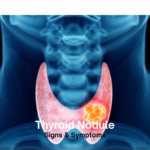Understanding Tinnitus: Causes, Symptoms, and Management
Tinnitus, often described as a ringing in the ears, is a condition that affects millions of people worldwide. It can manifest as a variety of sounds, including ringing, buzzing, hissing, or whistling, and can occur in one or both ears. For some, tinnitus is a minor inconvenience, while for others, it can be a debilitating condition that significantly impacts their quality of life. This article aims to provide a comprehensive understanding of tinnitus, its causes, symptoms, and available management options.
What is Tinnitus?
Tinnitus is not a disease but a symptom that can result from a variety of underlying conditions. It is characterized by the perception of sound in the absence of an external auditory stimulus. Tinnitus can be subjective, heard only by the individual, or objective, which is rare and can be heard by a clinician using a stethoscope.
Causes of Tinnitus
Tinnitus can be caused by various factors, including:
- Hearing Loss: Age-related hearing loss (presbycusis) or noise-induced hearing loss are common causes of tinnitus. Damage to the tiny hair cells in the inner ear that transmit sound signals to the brain can lead to the perception of tinnitus.
- Exposure to Loud Noises: Prolonged exposure to loud sounds, such as music concerts, construction work, or loud machinery, can damage the inner ear and result in tinnitus.
- Ear Infections and Blockages: Ear infections, excessive earwax, and other blockages can cause temporary tinnitus. Once the infection or blockage is treated, the tinnitus usually resolves.
- Ototoxic Medications: Certain medications, including some antibiotics, chemotherapy drugs, and high doses of aspirin, can cause or worsen tinnitus.
- Head and Neck Injuries: Trauma to the head or neck can affect the inner ear, auditory nerves, or brain function, leading to tinnitus.
- Medical Conditions: Conditions such as high blood pressure, cardiovascular disease, diabetes, thyroid disorders, and temporomandibular joint (TMJ) disorders can contribute to tinnitus.
- Stress and Anxiety: Psychological factors, including stress and anxiety, can exacerbate tinnitus or make it more noticeable.
Symptoms of Tinnitus
The primary symptom of tinnitus is the perception of sound without an external source. This can manifest in various forms:
- Ringing
- Buzzing
- Hissing
- Whistling
- Clicking
- Roaring
Tinnitus can be constant or intermittent, and its intensity can vary. Some individuals experience tinnitus that aligns with their heartbeat, known as pulsatile tinnitus, which often indicates an underlying vascular condition.
Impact on Quality of Life
Tinnitus can significantly affect an individual’s quality of life. Common issues associated with tinnitus include:
- Sleep Disturbances: The persistent noise can make it difficult to fall asleep or stay asleep.
- Concentration Difficulties: Tinnitus can interfere with focus and concentration, impacting work or daily activities.
- Emotional Distress: Many individuals with tinnitus experience anxiety, depression, and frustration due to the constant noise.
- Social Withdrawal: The condition can lead to social isolation as individuals may avoid social situations where tinnitus is particularly bothersome.
Diagnosis of Tinnitus
Diagnosing tinnitus involves a thorough evaluation by a healthcare professional. The process typically includes:
- Medical History: A detailed medical history helps identify potential causes and contributing factors.
- Physical Examination: A physical examination of the ears, head, and neck can reveal signs of earwax blockage, infection, or other issues.
- Hearing Tests: Audiometric tests assess hearing acuity and help identify any hearing loss that might be contributing to tinnitus.
- Imaging Studies: In some cases, imaging studies like MRI or CT scans are conducted to rule out structural abnormalities or underlying medical conditions.
- Blood Tests: Blood tests can help identify underlying health issues such as thyroid problems or vitamin deficiencies.
Management and Treatment of Tinnitus
While there is no cure for tinnitus, several management strategies can help alleviate symptoms and improve quality of life:
- Hearing Aids: For individuals with hearing loss, hearing aids can amplify external sounds, making tinnitus less noticeable.
- Sound Therapy: Background noise from white noise machines, fans, or specialized sound generators can help mask the tinnitus sounds.
- Cognitive Behavioral Therapy (CBT): CBT helps individuals reframe negative thoughts about tinnitus and develop coping strategies.
- Tinnitus Retraining Therapy (TRT): TRT combines sound therapy and counseling to help the brain habituate to tinnitus sounds.
- Medications: While no medication can cure tinnitus, certain drugs, such as antidepressants or anti-anxiety medications, can help manage symptoms.
- Lifestyle Changes: Reducing exposure to loud noises, managing stress, and avoiding ototoxic medications can help manage tinnitus.
- Alternative Therapies: Some individuals find relief through acupuncture, hypnosis, or herbal supplements, although the efficacy of these treatments varies.
Coping Strategies for Tinnitus
Living with tinnitus can be challenging, but several coping strategies can make it more manageable:
- Stay Active: Engage in activities and hobbies to distract from tinnitus and maintain a sense of normalcy.
- Practice Relaxation Techniques: Techniques such as yoga, meditation, and deep breathing can reduce stress and help manage tinnitus.
- Join Support Groups: Connecting with others who have tinnitus can provide emotional support and practical advice.
- Protect Your Ears: Use earplugs or earmuffs in noisy environments to prevent further damage to your hearing.
Conclusion
Tinnitus is a complex condition that can significantly impact an individual’s life. Understanding its causes, symptoms, and available management options is crucial for those affected by it. While there is no cure, various treatments and coping strategies can help individuals manage their symptoms and improve their quality of life. If you experience persistent tinnitus, seeking professional medical advice is essential to determine the underlying cause and develop an effective management plan.





